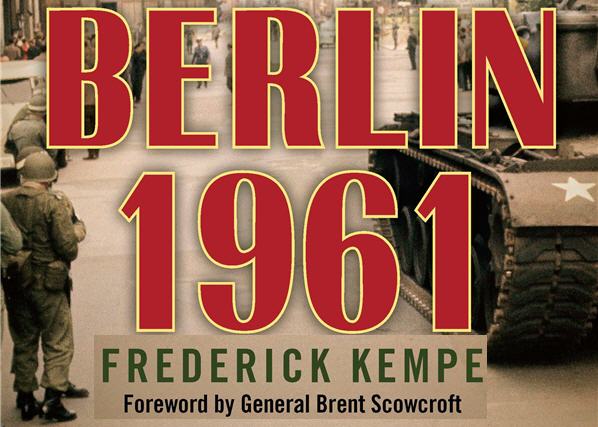
Five years after his forced retirement, Soviet leader Nikita Khrushchev in 1969 would concede to the American physician A. McGhee Harvey, a specialist who had visited Moscow to treat his daughter, that his watershed political event – the moment after which he “was no longer in full control” of the Kremlin — had been the Soviet shooting down of the U-2 American spy plane in May of 1960.
Finding that morsel of insight in a Life magazine interview with Dr. Harvey was the confirmation I had been seeking. There was ample evidence that Khrushchev was in a weakened political state as 1961 began, helping to explain the volatile swings in his behavior toward Kennedy early in the year, but to read Khrushchev’s corroboration of May 1960 as a turning point was powerful.
It also explained why Khrushchev, several days after the U-2 incident, had decided to sabotage the Paris Summit with President Dwight D. Eisenhower, after the U.S. leader refused to publicly apologize for the overflights. Moscow papers had trumpeted the gunning down of the sophisticated spy plane as a Soviet military triumph, and Khrushchev swaggered through a Moscow public exhibit that displayed the aircraft’s remains. Yet within days of the event, Khrushchev recognized that the U-2 incident posed greater dangers to him than to the Americans.
Sadly, Kennedy never appreciated Khrushchev’s domestic challenges from rivals who would be far troublesome partners for Washington. If he had, he may have more confidently embraced Khrushchev’s peace gestures on his first day in office – the release of captured American pilots and the uncensored publication in the Soviet media of his inaugural speech. These reflected Khrushchev genuine desire for improved relations, but he would have trouble sustaining them against opponents without impressive, compensating U.S. gestures. Instead, however, Kennedy grew obsesses with a routine Khrushchev propaganda speech as evidence that he planned to escalate the Cold War, when Khrushchev was merely protecting his hard-line flank.
Historians, in general, underestimate the power of domestic politics in shaping any country’s foreign policy. That is even truer in authoritarian countries, whether today’s Iran or Khrushchev’s Soviet Union, where domestic politics is more hidden and more difficult to gauge, yet no less decisive.
From May 1960 forward, Khrushchev had to defend himself against adversaries who argued that the U.S. spy plane incursions of Soviet territory proved beyond any doubt that the Soviet leader’s approach of peaceful coexistence with the West was fruitless, naïve and dangerous. His political enemies at home and abroad, neutralized after the failed 1957 coup attempt against him, began to regroup.
China’s Mao Tse-tung publicly condemned Khrushchev’s wooing of the Americans as “communist betrayal,” and he plotted behind the scenes within the growing, international Communist world to encourage Khrushchev’s removal. Soviet party officials and military brass questioned Khrushchev’s troop reductions, arguing that he was undermining their ability to defend the homeland.
However, Americans were so caught up in anti-Communist fervor that it was difficult for public opinion to accept that Khrushchev was an instinctive reformer, if a highly erratic one, who had defined his leadership by breaking with Stalin’s excesses. He had accepted Finnish and Austrian neutrality, and until the Hungarian uprising in 1956 had embraced political liberalization in Eastern Europe. He hadn’t chosen his course of peaceful coexistence with the West for altruistic reasons, but because he had concluded that the Soviet economy couldn’t support an ongoing confrontation.
Yet as so often would be the case during the Berlin Crisis of 1961, events would be driven not by the facts but by misunderstandings and miscommunication.
Fred Kempe is president and CEO of the Atlantic Council. His latest book, Berlin 1961, will be available May 10. This blog series originally published by Reuters.
Image: berlin1961-cropped.jpg
